Harry’s books
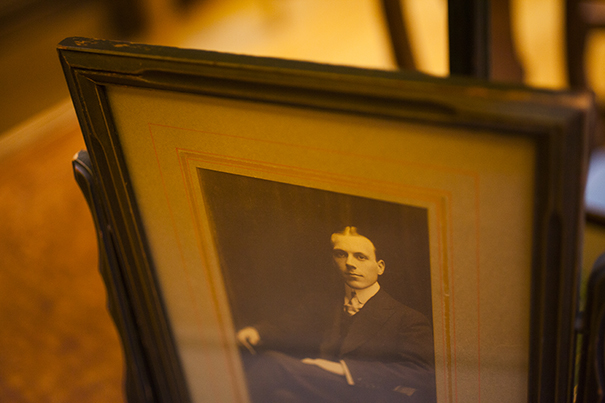
The Harry Elkins Widener Memorial Collection resides inside Widener Library at Harvard University. A photograph of Harry Elkins Widener is on display in the room.
Stephanie Mitchell/Harvard Staff Photographer
At the center of Widener Library, a miniature museum
Ralph Waldo Emerson once wrote: “Cambridge at any time is full of ghosts.” Surely the spirit of Harry Elkins Widener lives on in the library erected in his honor.
The son of a wealthy Philadelphia businessman, Widener graduated from Harvard in 1907. In April 1912, he and his parents were set to sail back from England, where Harry had traveled to purchase more books for this expanding collection. The family arranged passage aboard the RMS Titanic, the indestructible passenger liner that sank after striking an iceberg off the coast of Newfoundland on April 15. Harry and his father died. His mother built the library in her son’s name.
“She built this whole library for the entire University and put at the heart of it Harry’s collections and a hall to memorialize him,” said Rachel Howarth, co-acting librarian of Harvard’s Houghton Library, who curates the collection.
The Harry Elkins Widener Memorial Collection — books, manuscripts, and drawings — is carefully preserved at the center of the 320,000-square-foot Beaux-Art Widener Library, which opened in 1915. Its space is a miniature museum — dark-paneled with ornately carved English oak, Alabama marble, and soaring ceilings — and holds roughly 3,300 volumes.
Widener fell in step early with his family’s passion for collecting. While his grandfather gravitated toward fine art, his mother silver, and his uncle “everything,” the young Widener developed a passion for books while at Harvard. His earliest purchases, carefully preserved in the room’s 16 glass cases, reflect his love of Charles Dickens and Robert Louis Stevenson, and his interest, likely sparked by his participation in Harvard’s Hasty Pudding Theatricals, in lavishly illustrated costume books.
Widener never saw perhaps the most famous work in the collection: the Gutenberg Bible, also known as the Mazarin Bible. The volume first belonged to his grandfather, P.A.B. Widener, who bought it in 1912. In a letter mailed shortly before his ill-fated voyage, the young Widener wrote excitedly to a friend about his grandfather’s purchase. “Grandfather has bought the Hoe copy on paper of the Mazarin Bible. Is it not great? I wish it was for me but it is not.” On May 8, 1944, the Bible was given to Harvard by Harry’s brother and sister.
“It’s funny, because you think these are just ‘pretty books’ but there are some that are important, unique, definitive, the only one,” said Howarth.
One of those definitive books is a Third Folio of Shakespeare, dated 1664. Bound in rich red and gold, the folio, with several plays not included in the first two, is considered the rarest of the three, as most copies were destroyed in the Great Fire of London in 1666.
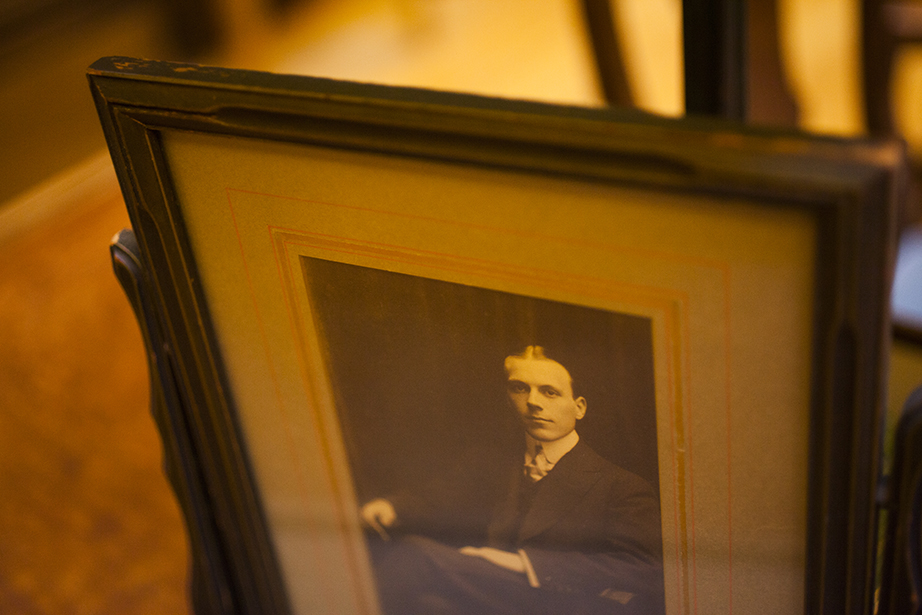
The Harry Elkins Widener Memorial Collection resides inside Harvard’s Widener Library. A photograph of Harry Elkins Widener is on display in the room.
Harvard University

In keeping with a request from Harry Elkins Widener’s mother, Eleanor Elkins Widener, fresh flowers are delivered to the room each week.
Harvard University
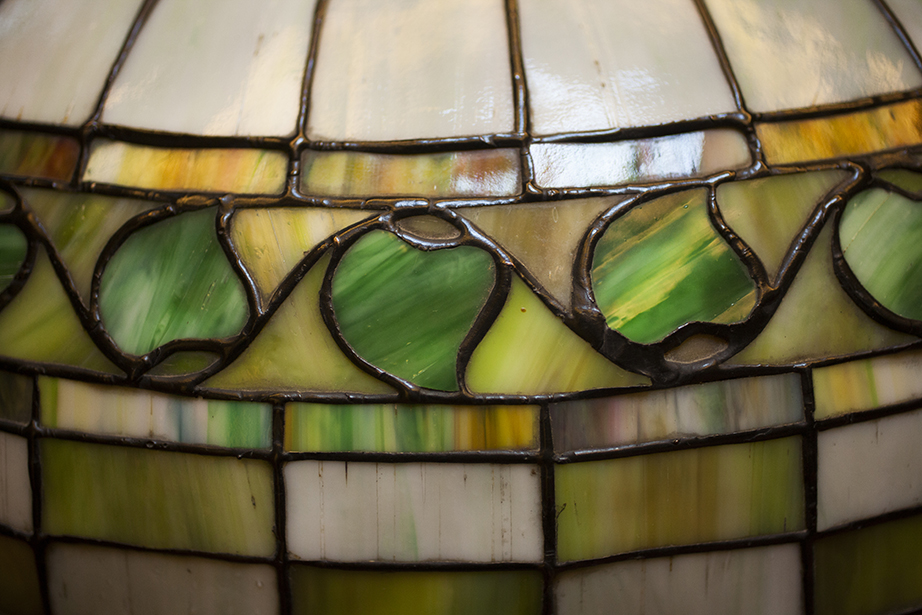
An unsigned Louis Comfort Tiffany lamp is part of the room’s original décor.
Harvard University
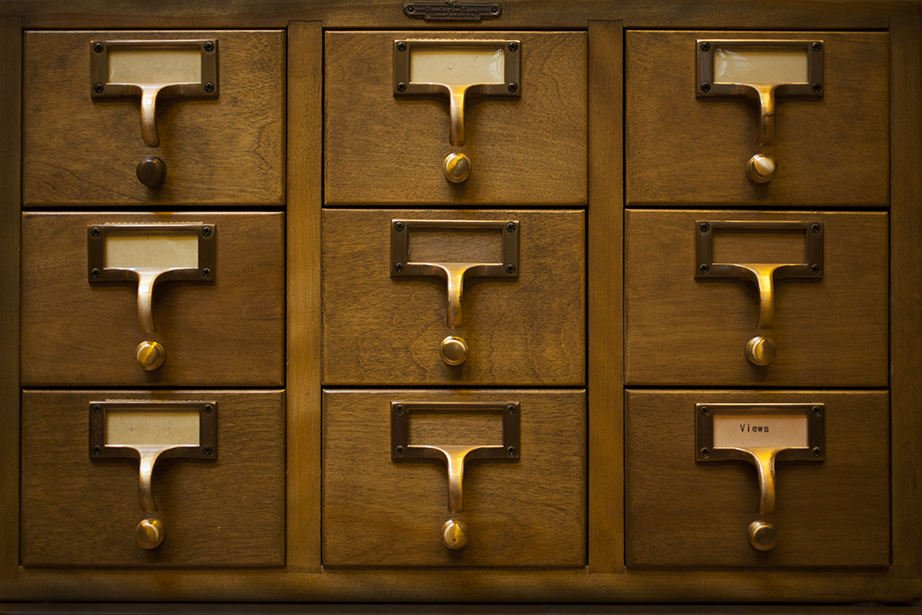
A card catalog contains a “shelflist” of the books with the cards inside arranged in call number order corresponding to the books on the shelves.
Harvard University
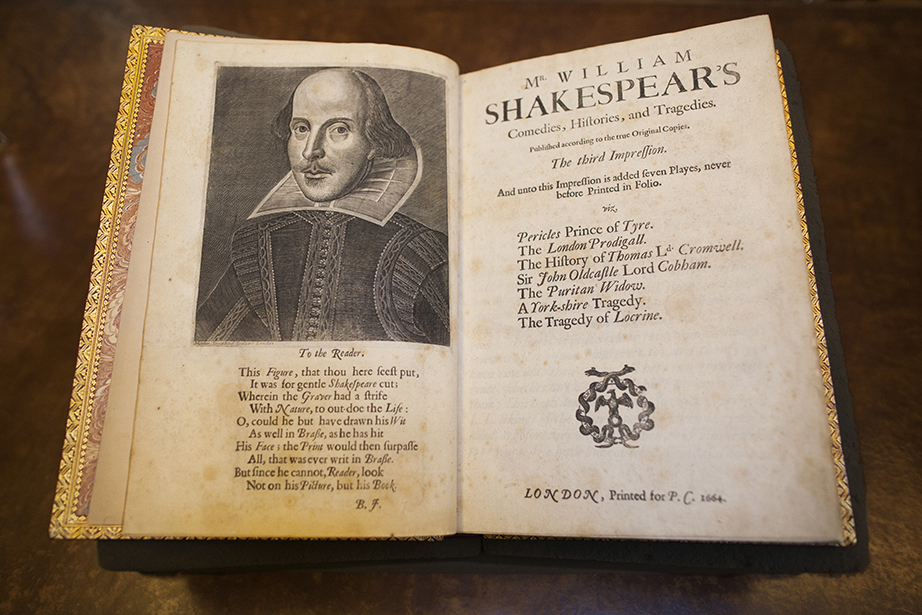
A rare copy of William Shakespeare’s Third Folio is part of the collection.
Harvard University
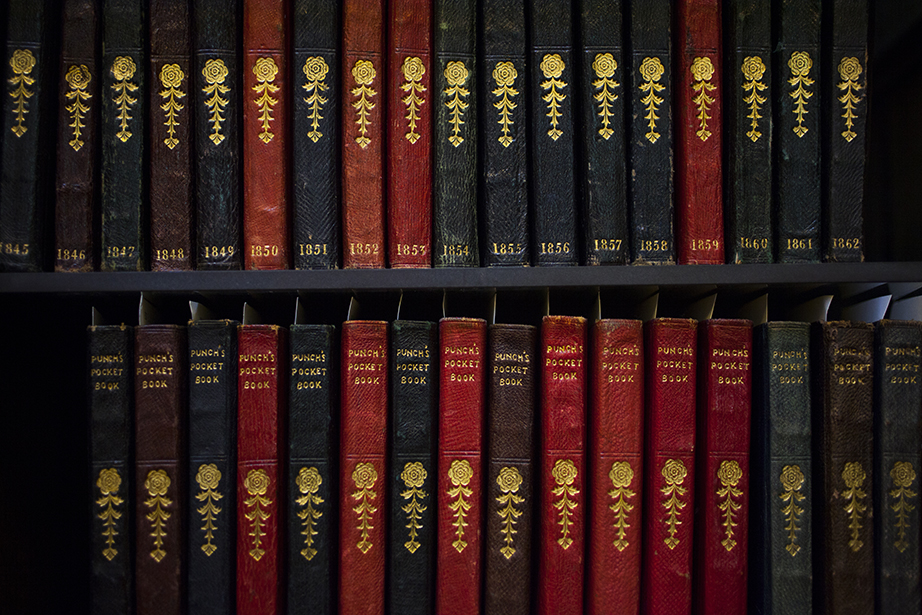
Punch’s pocket books containing personal calendars, memoranda, cash accounts, and almanacs from the 1800s are some of the smaller volumes in the collection.
Harvard University
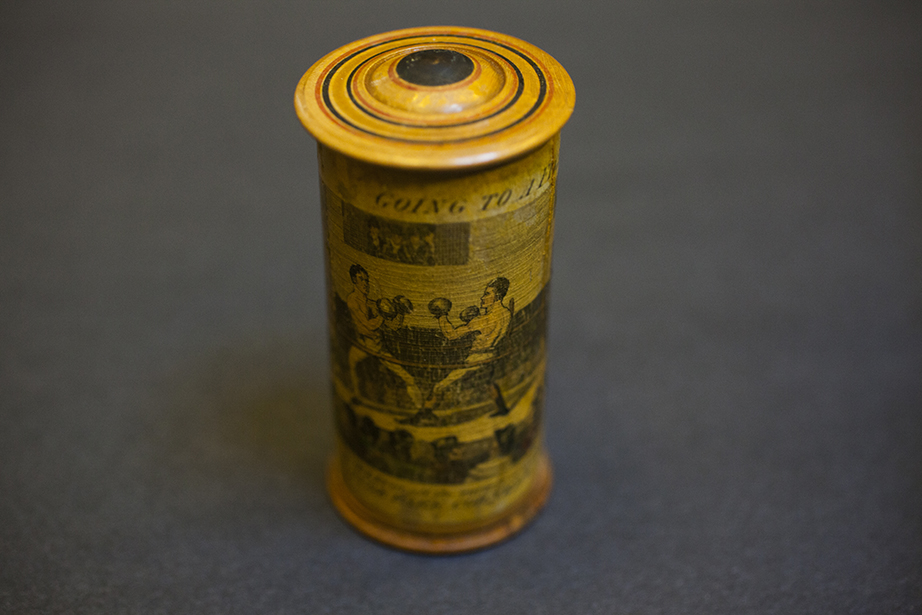
A whimsical illustrated scroll by caricaturist and illustrator Robert Cruikshank is titled “Going to a Fight.”
Harvard University
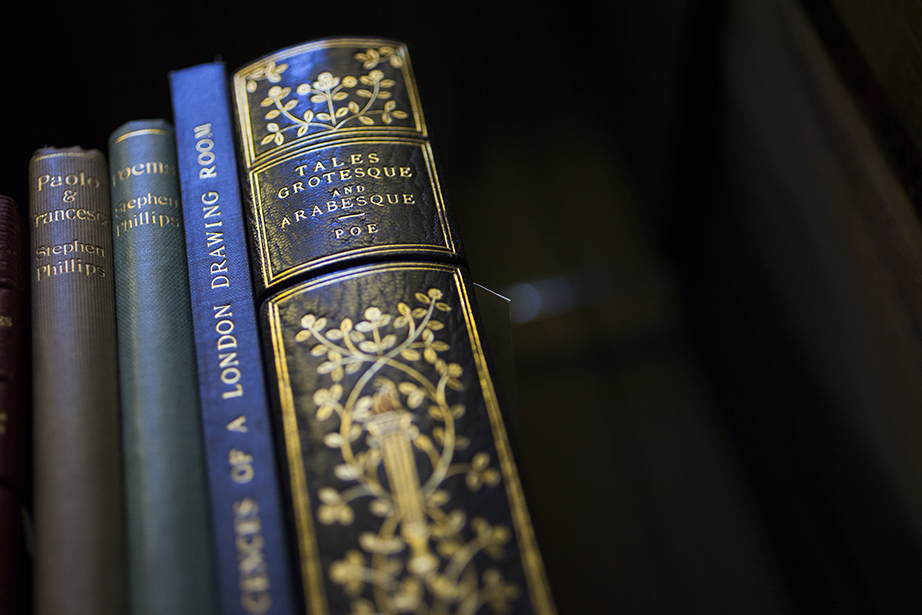
An 1840 first edition of Edgar Allan Poe’s collection of short stories “Tales of the Grotesque and Arabesque” is part of the Widener collection.
Harvard University
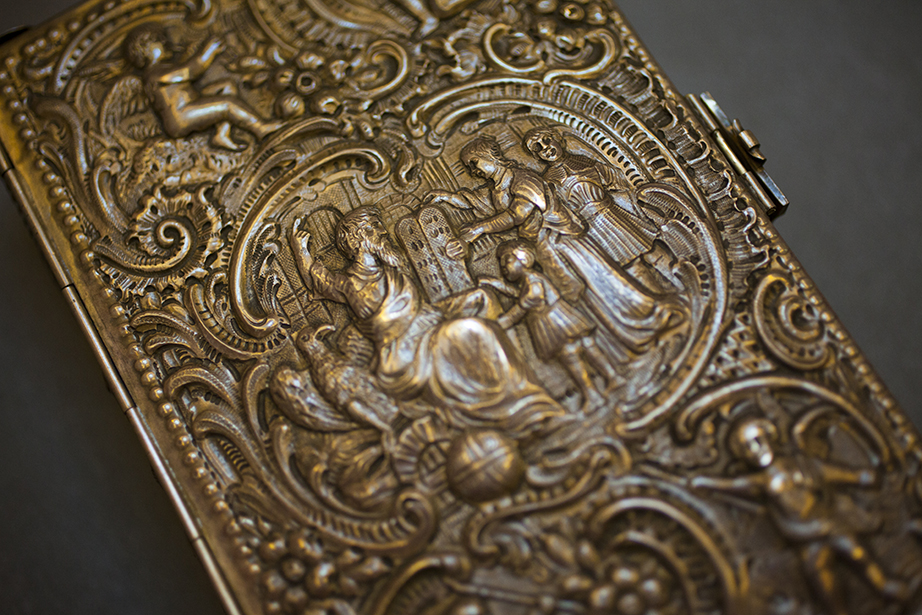
An elaborate silver relief binding covers a 1763 work by German scholar Johann Peter Miller.
Harvard University
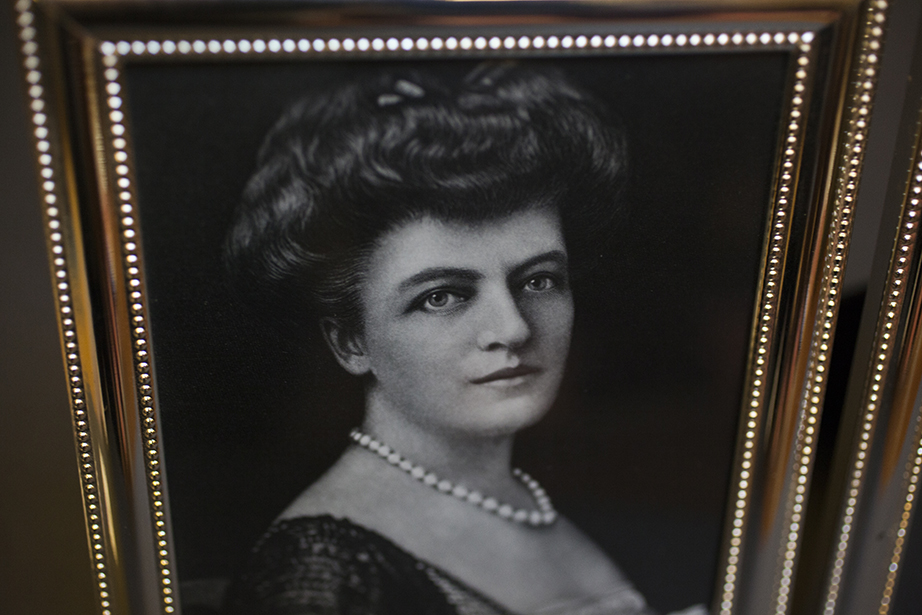
A photograph of Harry Elkins Widener’s mother, Eleanor Elkins Widener.
Harvard University
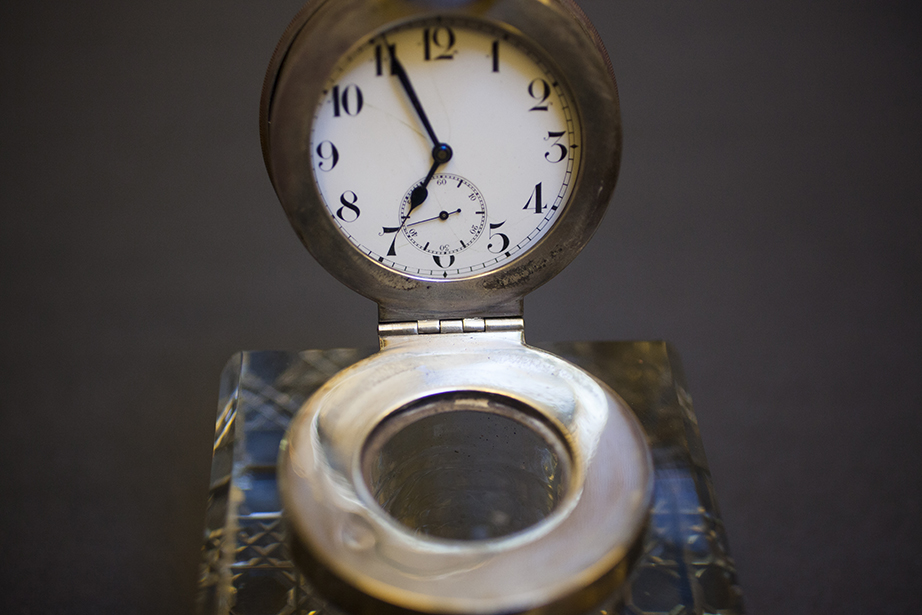
Harry Elkins Widener’s inkwell is one of his few personal items in the collection, besides his volumes.
Harvard University
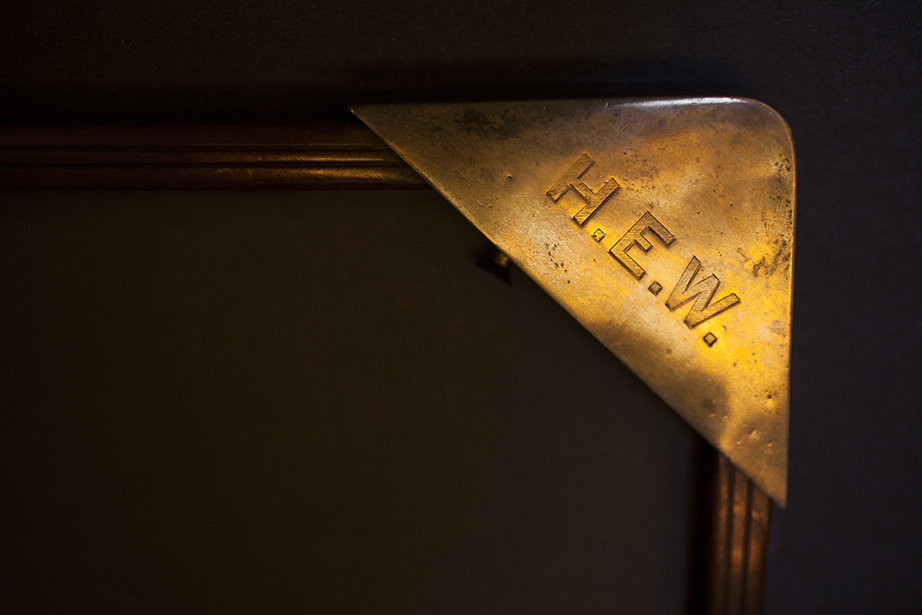
A monogramed tray belonging to Harry Elkins Widener sits atop his desk.
Harvard University
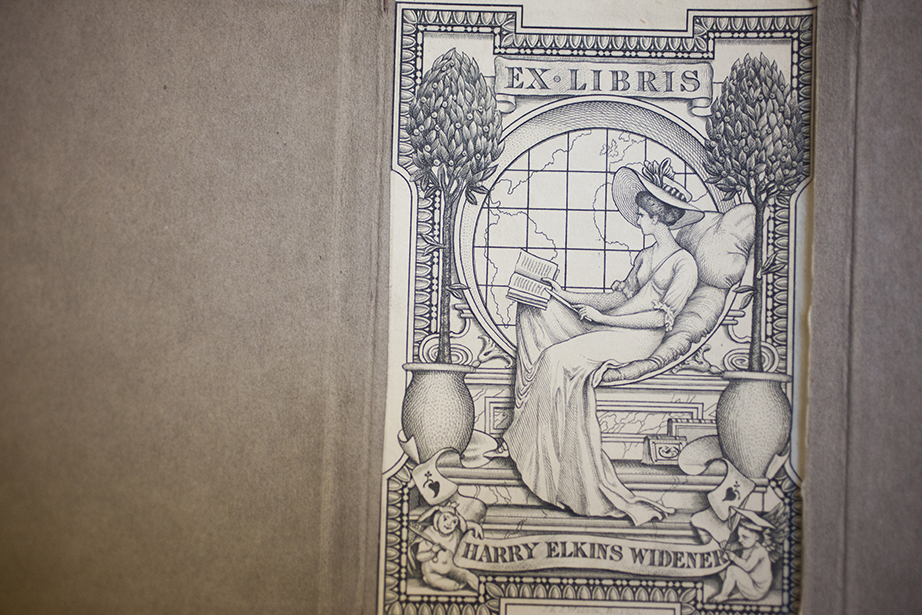
Harry Elkins Widener’s bookplate, designed by English illustrator Walter Crane, is affixed to every volume in the collection.
Harvard University
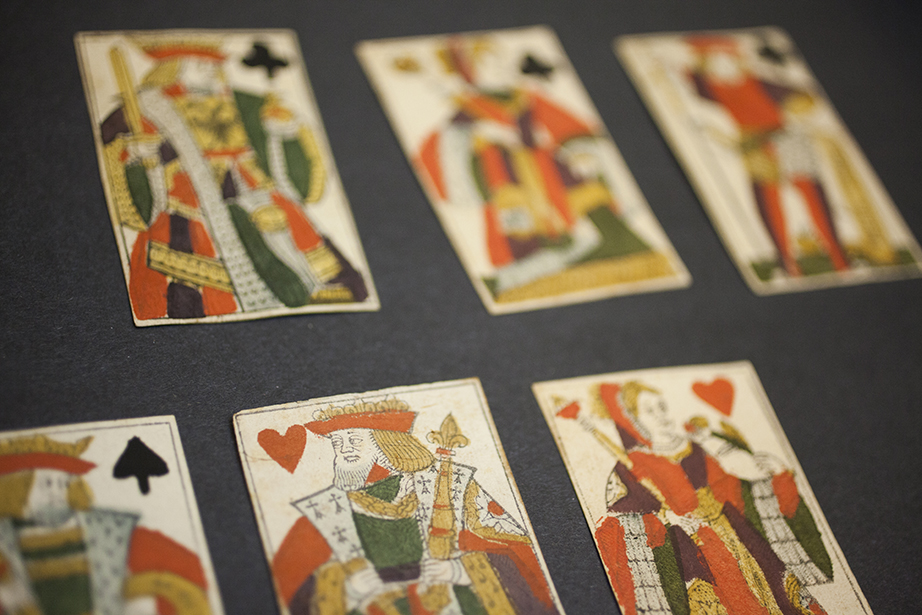
The collection includes a series of woodcut, hand-colored playing cards, circa 1750.
Harvard University
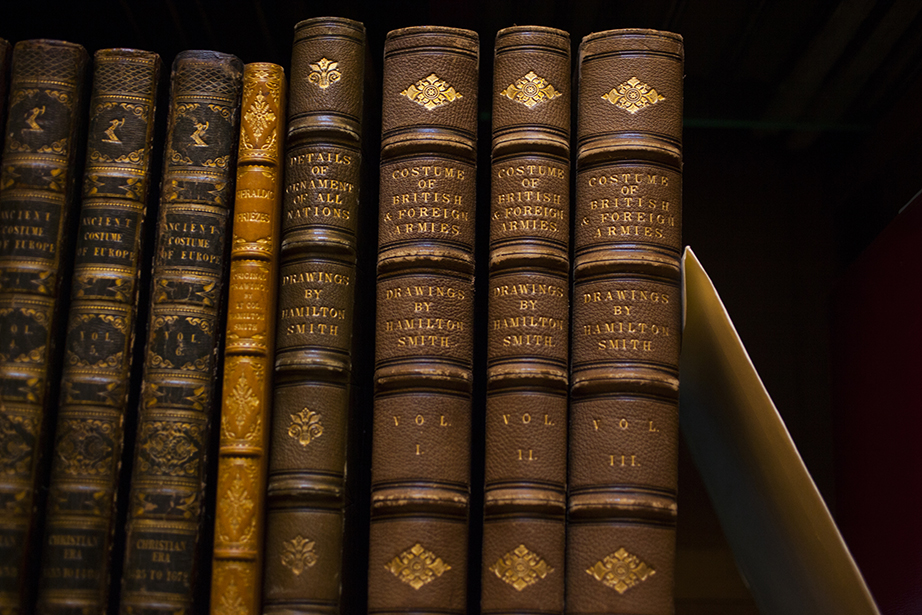
Volumes of “Costume of British & Foreign Armies” are part of the collection. The slip of white paper next to the books holds the place of a borrowed item.
Harvard University

A Persian Heriz rug is part of the room’s original decor.
Harvard University
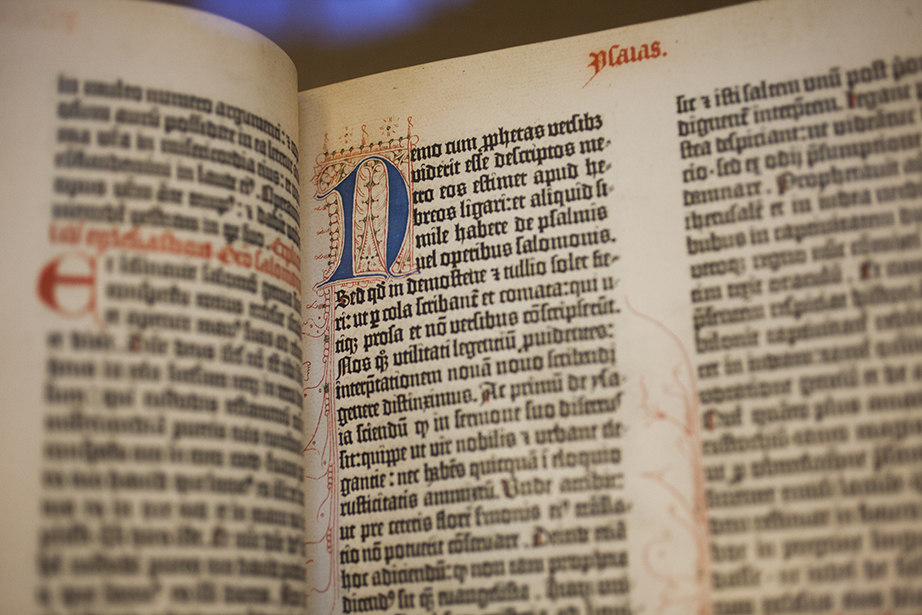
Johann Gutenberg’s 1454-55 Latin Bible is one of the collection’s main attractions.
Harvard University
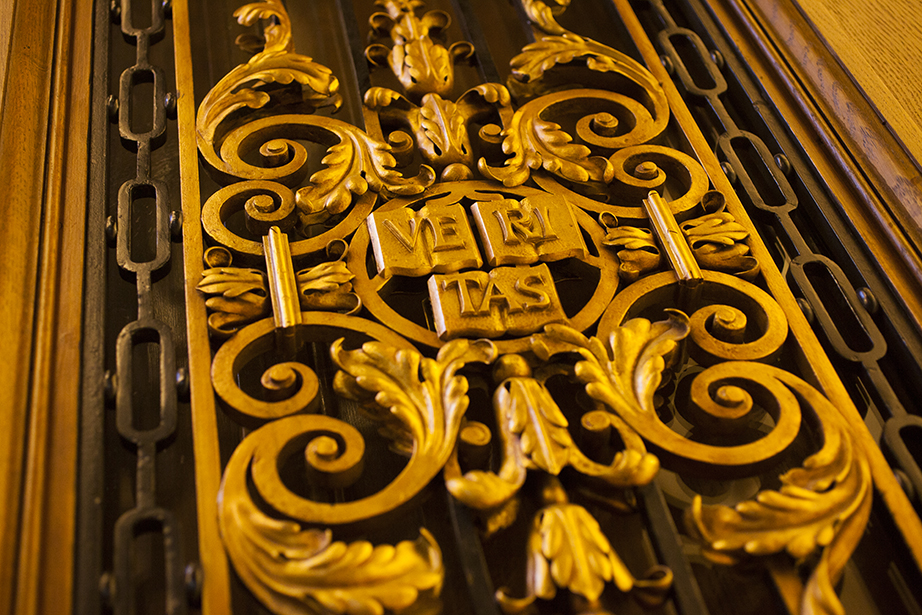
A Veritas shield adorns the entrance to the room.
Harvard University
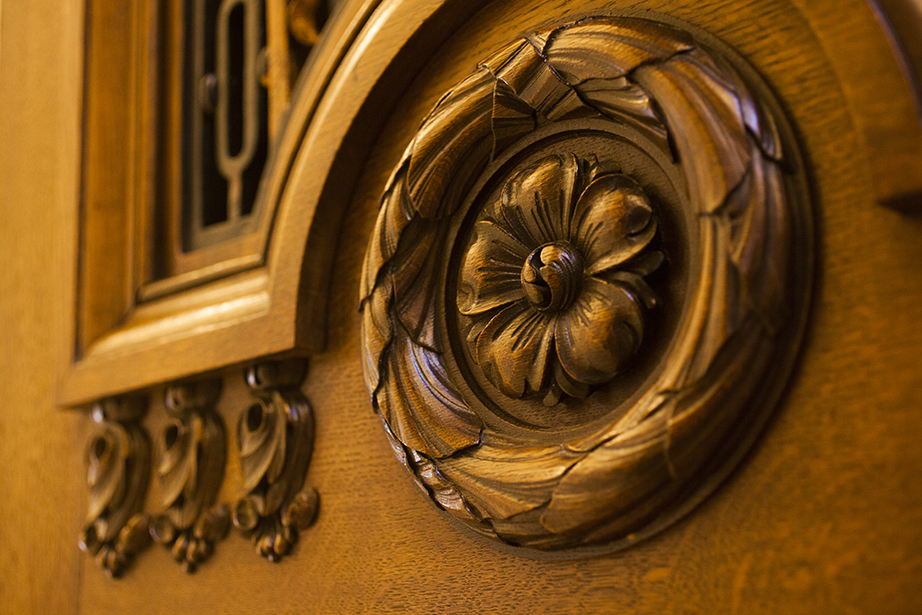
Intricate woodcarvings adorn the entrance to the room.
Harvard University
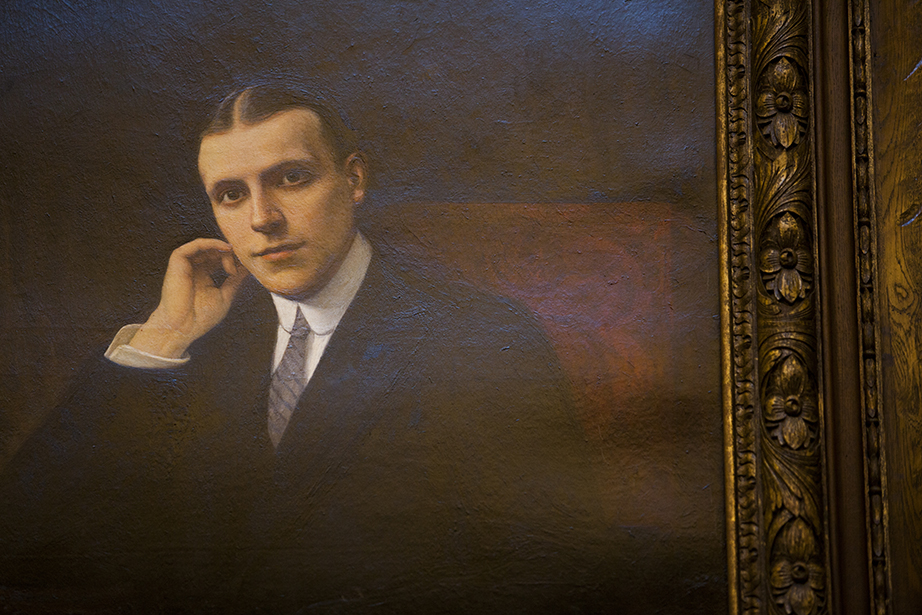
A painting of Harry Elkins Widener by French artist Gabriel Ferrier hangs above the room’s fireplace.
Harvard University



